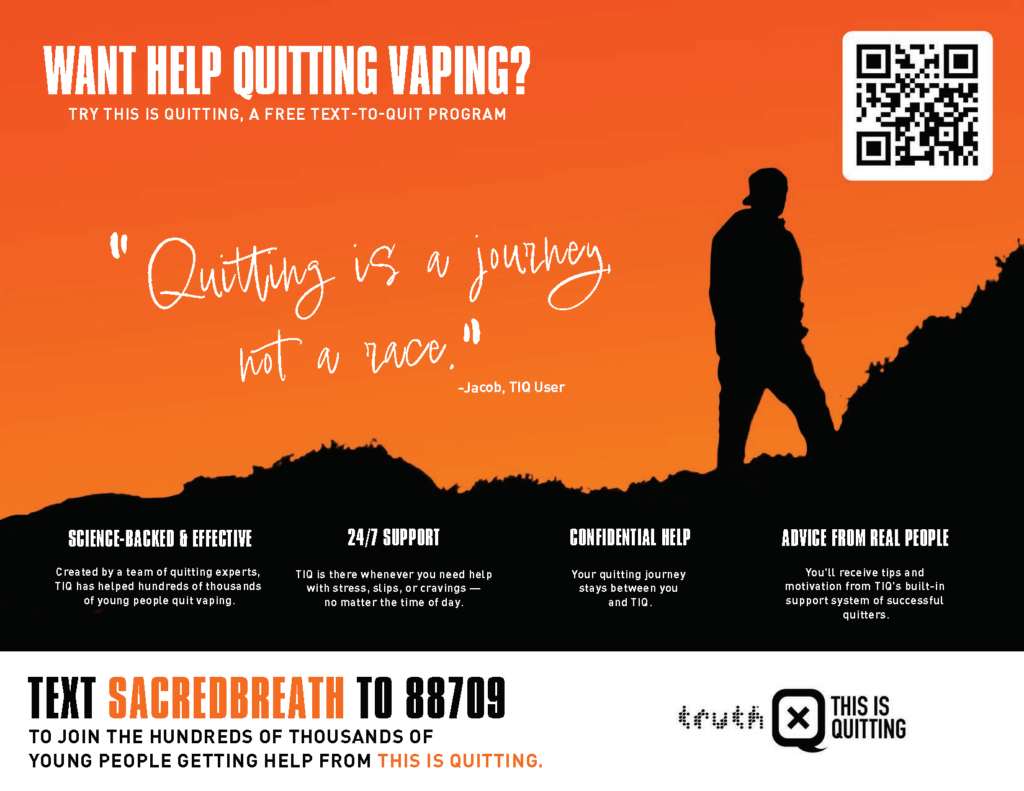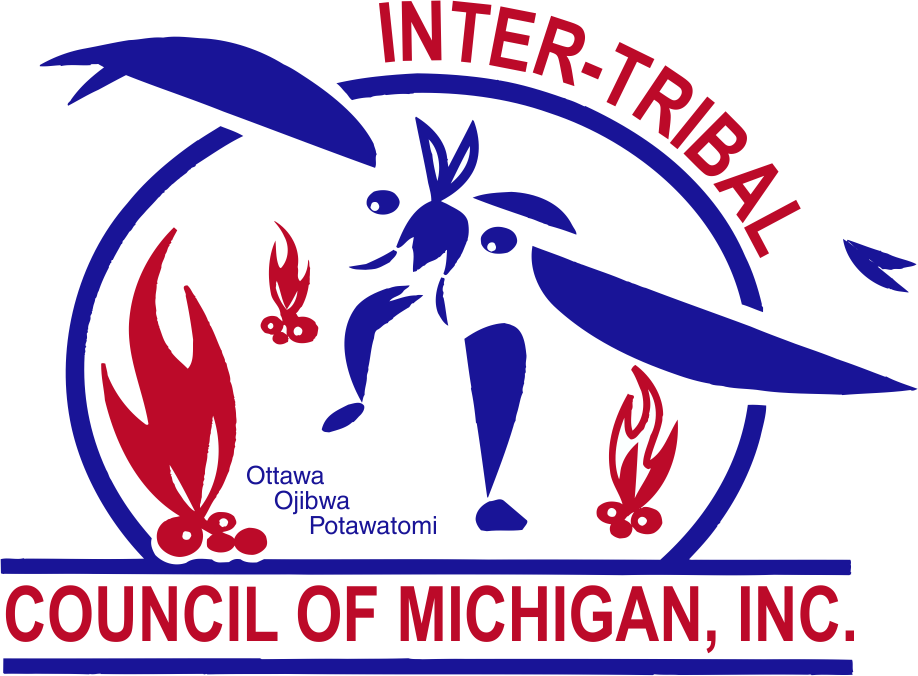Press Releases
Press Releases
Tribes to See New Support on Commercial Tobacco and Vaping Projects
Powered By EmbedPress
Indian Affairs announces $10 million in funding opportunity for ecosystem restoration of previously mined Tribal lands
www.indianaffairs.gov/as-ia/opa
New Support Arrives for Increasing Health Literacy Project
Powered By EmbedPress
Tribes Awarded Climate Change Support through MI Healthy Climate Corps and NOAA B-WET Projects
Powered By EmbedPress
CDC: Increasing Colorectal Cancer Screening Among Tribal Members During the COVID-19 Pandemic
September 26, 2024
Key Points:
To ensure that American Indians in Michigan were given the support and services they needed to prevent cancer and find it early, the Inter-Tribal Council of Michigan started the Three Fires Cancer Consortium in 2017 with funding from CDC’s National Comprehensive Cancer Control Program.
Overview:
American Indian and Alaska Native people have much higher rates of several cancers, compared to non-Hispanic White people in the United States.
Michigan is home to more than 130,000 American Indian people. The Inter-Tribal Council of Michigan wanted to make sure that American Indians in the state were given the support and services they needed to prevent cancer and find it early. So they started the Three Fires Cancer Consortium in 2017 with funding from CDC’s National Comprehensive Cancer Control Program.
The Three Fires Cancer Consortium serves the Bay Mills Indian Community, the Hannahville Indian Community, the Keweenaw Bay Indian Community, the Little Traverse Bay Bands of Odawa Indians, and the Sault Ste. Marie Tribe of Chippewa Indians. READ MORE
AG Nessel Announces Missing or Murdered Indigenous People Task Force
CLICK HERE FOR MICHIGAN DEPARTMENT OF ATTORNEY GENERAL PRESS RELEASE
November 22, 2024
LANSING – Today, Michigan Attorney General Dana Nessel announced the formation of the Missing or Murdered Indigenous People (MMIP) Task Force to address the high rates of violence against Indigenous people in the state of Michigan. This interagency collaboration brings together tribal, federal, and state and local prosecutors, law enforcement officers, victim advocates, and human services specialists to identify, develop, and implement solutions to the MMIP crisis.
“The MMIP Task Force marks a critical first step in combatting abuse and violence against Indigenous people in Michigan,” said Attorney General Nessel. “By prosecuting and tackling the root causes of these crimes, working directly with this board coalition of MMIP Task Force members, we can build safer communities and pave the way for justice for the families and victims impacted by this crisis. I look forward to workin alongside tribal leaders and state, federal, and nonprofit partners to create real, systemic change for Michigan’s Indigenous population.”
Studies indicate that a significant majority, nearly 85 percent, of Indigenous women experience violence in their lifetime. The MMIP Task Force will focus on improving the investigation and prosecution of MMIP cases, bridging gaps in the law enforcement systems, and identifying best practices. By examining the factors that contribute to the vulnerability of Indigenous individuals, particularly women, children, and two-spirit people, the Task Force aims to develop a holistic, victim-centered, and culturally honoring approach to prevention, response, and support.
The Department of Attorney General held the first MMIP Task Force meeting in September 2024, where tribal leaders, state, and federal agencies, and advocacy groups discussed raising awareness, identifying contributing factors, and developing Michigan-specific solutions to the MMIP crisis. The next MMIP Task FOrce meeting will be in December 2024.
To gather information and connect with MMIP victims, the Attorney General has established a tip line. This tip line is in addition to the federal tribal resources that have been put in place, including the tribal community response plans that many of the Michigan tribes have adopted. Individuals with information about missing or murdered indigenous people in Michigan can now call 517-284-0008 in addition to the other available resources.
“The Pokagon Band of Potawatomi Indians is pleased to join forces with Attorney General Nessel, other tribal nations within Michigan, and the rest of the MMIP task force to work collaboratively on awareness, prevention, response, and support of missing or murdered indigenous people,” said Matthew Wesaw, Tribal Council Chairman of the Pokagon Band of Potawatomi Indians. “Too many of our sisters and brothers live with the devastation of having prematurely lost a loved one due to violence. We hope that this new collaboration will build upon and advance our previous efforts to make a meaningful difference.”
“My hope is that this task force will help develop and support such a robust multi-jurisdictional response to the epidemic of missing and murdered indigenous people that it can be felt by communities throughout Indian Country, and that real change occurs to make our people feel safer, more protected and heard, and that we not only find justice for victims but realize a reduction in the number of future victims through a focus on prevention,” said James Williams, Jr., Tribal Chairman of the Lac Vieux Desert Band of Lake Superior Chippewa Indians.
“The Gun Lake Tribe appreciates the collaboration with Michigan Attorney General Nessel and her office on the formation of the MMIP Task Force,” said Virginia Sprague-Vanderband, Gun Lake Tribal Council Member. “This grassroots cause which began as MMIW and has turned from the focus solely on women to people are important to our tribal community. In a community that focuses on the wellbeing and protection of all our citizens, we knew we had to participate. Our tribe also has an internal task force focused on policies and procedures that protect these rights from National Indian Child Welfare Association, Domestic Violence, and MMIP. It is an honor to have three Gun Lake Tribe leaders on this statewide task force: Jodie Palmer, Tribal Council Vice-Chair, Liz Cook, General Counsel, and myself Virginia Sprague-Vanderband, Tribal Council. We are excited to be a part of this effort and applaud the state’s commitment to this movement.”
“We’re grateful that Attorney General Nessel is leading this new effort to address the heartbreaking issue of violence impacting Indigenous people,” said Dorie Rios, Chair of the Nottawaseppi Huron Band of the Potawatomi. “For too long this issue has been largely ignored by local, state and federal law enforcement officials, leaving Tribal members to feel like second-class citizens. This task force will help bring change to a long-overlooked human rights issue.”
“As someone who has worked as a social worker in tribal governments here in Michigan and across the country, I have witnessed up close the need to bring greater attention to reducing the high rates of violence within indigenous communities,” said Sault Ste. Marie Tribe of Chippewa Indians Chairman Austin Lowes. “I applaud Attorney General Nessel for working to address this issue and look forward to partnering with the MMIP Task Force to help improve coordination and build better relationships between our tribe and state and federal law enforcement agencies.”
###
CLICK HERE FOR MICHIGAN DEPARTMENT OF ATTORNEY GENERAL PRESS RELEASE
Media Contact:
Danny Wimmer
Press Secretary
agpress@michigan.gov
NEW FREE E-CIGARETTE QUIT PROGRAM AVAILABLE FOR TRIBAL TEENS & YOUNG ADULTS

Bay Mills Community College and Northwest Michigan College Collaborate to Develop Anishinaabe Dental Assistant Program

Rogel Cancer Center funds 4 Michigan community groups to provide cancer screening, prevention programs
Funding will allow local organizations to implement programs and services aimed at reducing disparities in cancer
ANN ARBOR, Michigan — The University of Michigan Rogel Cancer Center has awarded four Michigan community organizations a total of $200,000 in grants for projects designed to improve cancer screening and tobacco cessation among populations experiencing cancer disparities.
The grants will enable each organization to implement evidence-based interventions within the community they serve. Evidence-based interventions are efforts that have been shown through previous research to be effective at influencing public health. The funded projects focus on screening for breast, cervical and colon cancer in racial and ethnic groups with lower screening rates, and commercial tobacco cessation programs in the American Indian/Alaskan Native community.
About 60,000 Michiganders will be diagnosed with cancer this year and another 20,000 are expected to die from the disease. Since 1987, Michigan has seen a 10% decrease in cancer diagnoses and 25% decrease in cancer deaths.
“While we have seen a steady decline in cancer incidence and mortality in Michigan, the burden of cancer is not equally shared. There are significant racial and socioeconomic disparities across incidence, mortality, screening and early detection. These grants will help local community organizations across the state develop programs for the populations they serve and begin to address the cancer disparities we see in our state,” said Kenneth Resnicow, Ph.D., associate director for community outreach, engagement and health disparities at the Rogel Cancer Center.
As a National Cancer Institute-designated comprehensive cancer center, Rogel is committed to supporting community health needs throughout the state of Michigan to reduce cancer disparities. Rogel’s Community Outreach and Engagement program provides public education, a community advisory board and support for innovative research. The team also works with community partners across the state to implement evidence-based interventions.
The grants will be funded over two years and include training and evaluation support from Rogel to ensure successful interventions.
Learn more about the four funded projects:
The Arab Community Center for Economic and Social Services (ACCESS)
ACCESS is a nonprofit organization serving diverse populations in Metro Detroit and beyond. ACCESS’s project aims to increase breast and cervical cancer screening rates among Middle Eastern and North African (MENA) women in Wayne, Oakland and Macomb counties. Research shows that foreign-born MENA women are less likely to get screened for cervical cancer than U.S.-born white women. To address this, the project will use bilingual patient navigation services to assist women unfamiliar with the American health care system in getting screened. Additional barriers to screening will be addressed through community events, social media campaigns and marketing materials.
The Inter-Tribal Council of Michigan (ITCM)
ITCM represents the 12 federally recognized tribes in Michigan and works to improve the quality of life for American Indian/Alaskan Native (AI/AN) populations. Due to a history of targeted marketing, adults from tribal communities in Michigan use commercial tobacco at significantly higher rates than the overall population. This results in an increased burden of lung cancer and other commercial tobacco-related cancers. The ITCM’s project will address this burden through a mass media campaign to increase awareness of smoking cessation resources, educate about the health risks of commercial tobacco, and ultimately reduce its use among AI/ANs in Michigan.
Taylor Street Primary Care Clinic
The Taylor Street Primary Care Clinic, established in 2020, is a nurse-managed, nonprofit primary care facility serving Detroit’s Virginia Park community and nearby Detroit neighborhoods. The clinic provides high-quality illness care, preventive services, and health and wellness programming. Their project will use motivational interviewing, a communication style for behavior change, to address patient concerns and barriers related to colorectal cancer screening. By enhancing patient motivation and lowering screening costs, the project seeks to reduce disparities in colorectal cancer diagnosis and deaths among African American people in the Virginia Park neighborhood and surrounding areas.
West Michigan Asian American Association (WMAAA)
WMAAA is a nonprofit organization advocating for the needs of Asian American people in Michigan, with a focus on education, health care and social justice. The goal of WMAAA’s project is to decrease disparities in breast and cervical cancer screening among Asian American women in West Michigan and Metro Detroit. Their project involves implementing a culturally appropriate program to educate women on breast and cervical health, supplemented by bilingual patient navigation to support Asian American women seeking screening. The project aims to reduce cancer deaths by addressing disparities, increasing access to quality and timely care, and improving outcomes through patient navigation.
With Support from a Member of the Little Traverse Bay Bands of Odawa Indians Tribe the CDC Launches a New Tips from Former Smokers Campaign
2023 Great Lakes B-WET Awards
Indigenous Community Awards
The Inter-Tribal Council of Michigan (ITCMI): Creating Meaningful and Cultural Watershed Educational Experiences for the Students of Ojibwe Charter School will provide meaningful and cultural watershed educational experiences for students who attend Ojibwe Charter School in the Bay Mills Indian Community on the southeastern shore of Lake Superior. During the 2023-2024 school year project collaborators will develop and prepare the new educational program and engage educators in professional development. The following school year, 3rd-12th grade students participate in a culturally immersive program. The program will inlude outdoor educational experiences, such as a tour of Lake Superior State University’s fish hatchery, and visiting and collecting water quality data in different locations in three local watersheds. Student lessons will include a focus on climate change and exploring Indigenous Traditional Ecological Knowledge (ITEK) to inform discussions on community adaptation. Guided by their teachers, students will choose an environmental action project that focuses on watershed protection/restoration, and at the end of this program, classes will perform a presentation to their peers and community.
